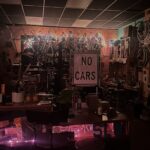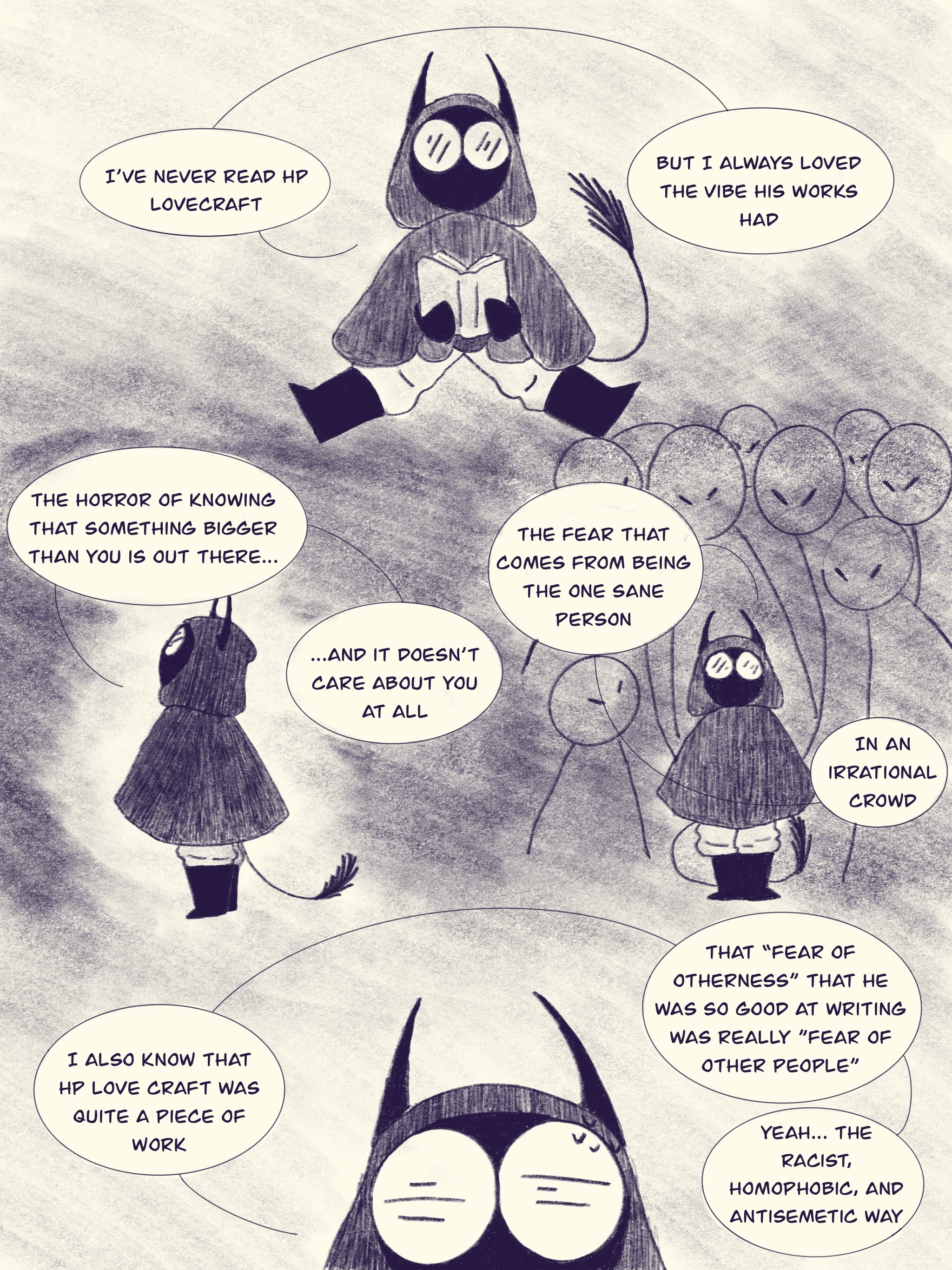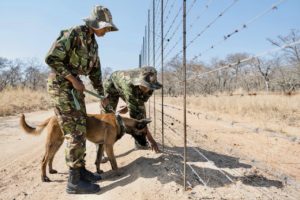Lick-Wilmerding’s Gender and Sexuality Awareness Club (GSA) is putting together Project Queerbook, a collaborative zine to represent the experiences of LGBTQ+ youth during the COVID-19 pandemic. The project is designed to keep queer youth connected to each other during shelter in place as well as to educate the larger community on the queer experience in quarantine. The zine will be released online shortly after school ends.
Many LGBTQ+ youth rely heavily upon communities with other queer youth for acceptance and support. Often these communities are centered around school-related social groups such as GSA and close friends or physical meeting spaces such as queer youth centers. These physical interactions are prohibited by the current shelter in place order.
For LGBTQ+ youth who, according to the Trevor Project— a nonprofit focused on suicide prevention for LGBTQ+ youth— are already at an increased risk for depression, anxiety, substance use and suicidality, losing in-person community support can be dangerous. Magnolia Finn ’21, along with the other co-leaders of GSA, recognized how these side effects of quarantine could have negative impacts on the Lick LGBTQ+ community and “wanted to take something that is really scary and make it into a positive experience.”
Finn, who is planning on submitting original artwork about the loneliness she has felt during shelter-in-place, hopes that other queer youth will use their art as a way to confront their struggles.
Kaya Shin-Sherman ’23 and a student who asked to remain anonymous are both submitting entries inspired by their gender identities. Shin-Sherman is putting together a series of outfits contrasting feminine ones with more masculine ones. “The clothes I wear are a huge part of my identity and self-expression,” she said, adding that she wanted to highlight both the masculinity and femininity in her gender expression. The anonymous student is digitally illustratiang a 5 page comic about non-binary gender expression. The comic is inspired by themes from H.P Lovecraft’s writings, such as fear of the unknown, which the student connects to their experience as a non-binary person.
Both students hope that fellow queer youth will be able to relate to their experiences with gender expression and feel more supported in their own exploration. While they hope those outside of the LGBTQ+ community use Project Queerbook a way to form increased awareness for other’s identities/struggles and become more aware of their personal impact on those struggles.
The anonymous student, who is not out to their parents, emphasized the extra isolation that queer youth can feel in quarantine. They said the feeling of being alone and the odd one out that inspired their entry is alleviated by queer spaces such as GSA and an understanding friend group that currently cannot meet in the same capacity as usual. “Queer spaces are quintessential to this feeling of comfort, knowing that you don’t have to constantly act gay but that there are other people around you that know who you are and respect that,” they said.
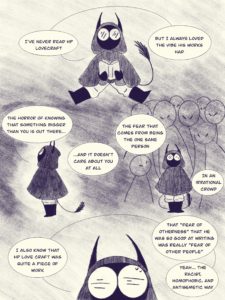
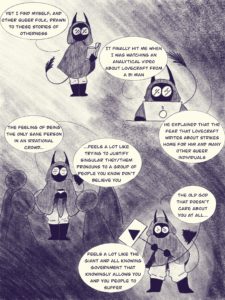
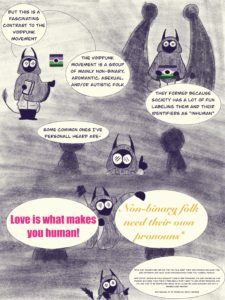
Research has shown that connection to the LGBTQ+ community can improve the mental health of queer youth. Only about one-third of queer youth feel accepted by their parents, and another third feel openly rejected. In general, unsupportive home environments lead to an increased risk of mental health issues for LGBTQ+ youth. This risk is only increased during quarantine, as youth are stuck in homes with hostile family members. The Lesbian, Gay, Bisexual and Transgender National Help Center, which is based out of the Bay Area, immediately saw a 50% increase in the use of their online chat resource when shelter in place began in mid-March.
Project Queerbook is not the only way GSA is supporting LGBTQ+ community members during the pandemic—both they and the queer-only group Space for Queers United In Diversity (SQUID) have continued meeting over Zoom once a week. GSA is seeking artwork of all mediums from the queer community both in and outside of their members. Leaders are advertising for submissions at GSA/SQUID meetings as well as in the eTiger. Students can submit both with their names and anonymously. This leaves space for students who may not be out or don’t feel comfortable attaching their names to queer media to submit.
Tony Asaro, the Vocal Music Teacher and one of the co-advisors of GSA, hopes that the Lick community, as a whole, will be able to find value in Project Queerbook. He said that LGBTQ+ people “grow up struggling, it’s part of us, and we learn how to survive it, so we can be a beacon for others.”
He thinks that the zine could lend those outside of the community new perspectives about queer identities but also about the struggle of quarantine for everyone.
Shin-Sherman is excited for Project Queerbook to be a visual representation of her community. She emphasizes that the strength of queer artwork comes from their unique encounters and struggles. “Being queer in this world causes you to have lots of experiences that you might not have if you were straight and cis; sometimes there’s pain that comes with that and not necessarily being normal or not knowing whether you’ll be accepted with certain people.”
She highlights that this pain often fuels art for many in the queer community. The anonymous student agreed: “I’ve had a lot of shakey encounters with folks who don’t understand aspects of my identity and it would have been a lot rougher if I didn’t have a medium to vent with.”
Finn thinks Project Queerbook will be a beautiful illustration of the power of the LGBTQ+ community during a tough time. She points out that everyone’s expression of their experience with COVID-19 will be different but that “We are all creators in one aspect or another.”


